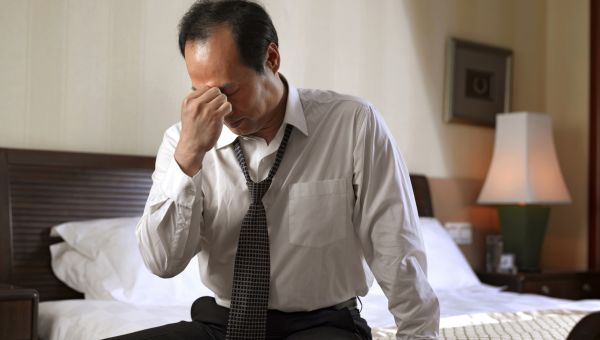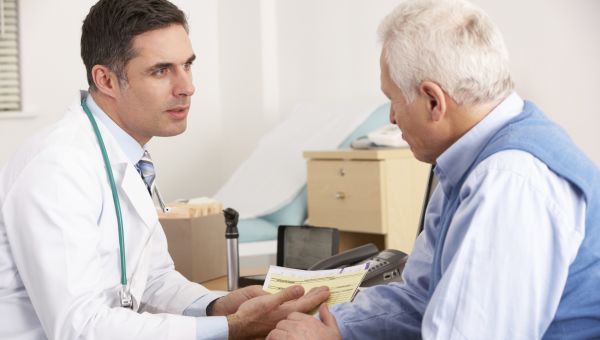9 ways chronic pain can affect quality of life
Minimize the emotional problems and physical discomfort caused by chronic pain.
Updated on October 31, 2023

Improve Quality of Life with a Pain-Management Plan
Chronic pain doesn't just hurt your body. It can often take a toll on your mental and emotional well-being, too.
When you experience chronic pain, your mood, your memory, your relationships, and your overall quality of life may be affected. Negative emotions can make pain worse and, in turn, contribute to depression and other emotional problems. To avoid this vicious cycle, it's important to work with a healthcare provider (HCP) to create a comprehensive pain-management plan that minimizes both the physical and emotional impacts of chronic pain.

Pain, Depression, and Mood
Constant aches and pains can understandably cause frustration, anger, anxiety, and depression. Occasional bouts of such emotions may not be a big deal, but if they persist, it's important to take action.
It may help to try distracting yourself from pain by doing activities you love. Explore new stress-reduction techniques, such as deep breathing or meditation. Work with a cognitive behavioral therapist or join a pain support group. Talking to others about your chronic musculoskeletal pain can help you realize you're not alone with your experience—and it may even ease the pain symptoms.

Pain and Your Self-Esteem
Pain can diminish job performance, lower your motivation to exercise, and prevent you from completing daily tasks. Such limitations can cause some pain sufferers to get down on themselves or to view their chronic pain as a sign of weakness or a personal defect.
If you find that constant pain is eroding your self-esteem, it may help to seek the aid of a therapist or pain support group. Talk therapy can help you reduce negative thinking and connect with others.

Pain Can Make You Feel Lonely
When you're in constant pain, the last thing you probably want to do is attend the company party, the neighbor's backyard barbecue, or even small gatherings with your closest friends and loved ones. Don't let pain drive you into social isolation and make you feel lonely.
To stay sociallly connected, focus on the quality, not quantity, of friendships. Nurture ties with a handful of close, supportive friends as opposed to a vast network of more superficial acquaintances.

Chronic Pain and Relationships
When you hurt all the time, it is often difficult to complete household chores, take care of the kids, contribute financially to the family, or fully participate in everyday activities. Sexuality and intimacy may also be diminished as a result of chronic pain.
Frustration, resentment, and communication breakdowns can occur—especially when a spouse or partner doesn't seem to understand or sympathize with your condition. Solution: It may help to seek guidance from a marriage counselor to help nurture your relationship.

Chronic Pain and Fatigue
Pain is exhausting. A sore back, achy hip, or bad knee can steal your sleep, elevate your stress levels, and drain your motivation to exercise. Reduce fatigue by integrating self-care measures into your pain-management plan. Eat a healthy diet, try to reduce or eliminate unhelpful habits like smoking or drinking excess alcohol, prioritize sleep, and exercise every day. You'll feel more energized and may even cope better with your pain.

Chronic Pain and Work
It can feel hard to be your best at work when you're in constant pain. Chronic pain can diminish concentration, memory, critical thinking abilities, and productivity.
If chronic pain is affecting your career, talk to your HCP about daytime pain medications that won't sedate you and get the sleep and exercise you need to keep your brain operating at its peak performance. Short daytime naps may also help. Try not to overcompensate by putting even more time at the office. Sometimes the hardest thing—but the best thing for you—is to take time off when you need it to help ease stress and help with pain management.

Pain and Your Home Life
It's hard to manage a household when you have chronic pain. Running errands, managing finances, and taking care of kids, pets, parents, and a partner can feel overwhelming. Remember to pace yourself, simplify, and let go of perfection. It's also okay to ask family members for help. Your home should be your sanctuary from pain, not something that aggravates it. Try techniques such as deep-breathing meditation to let your mind shelter you from chronic pain.

Pain and Your Healthcare Provider
Does your HCP take your chronic pain seriously or do you get the impression they think it's "all in your head"? Treating chronic pain, especially without a clear underlying cause, can be challenging, and some HCPs are better-equipped than others to help you manage pain.
Bottom line: Pain is a real condition that can be effectively treated. If you're not getting pain relief from your HCP, it's time to find a new one. Manage your pain proactively by building a better provider-patient relationship.

Ease Pain With Positive Thinking
Chronic pain can bring feelings of loss: loss of your physical function, your athletic abilities, favorite hobbies, a career, and even close relationships. While it's healthy to grieve, don't let pain make you a victim. You can take steps to take back your power.
To start, try to accept that chronic pain is a part of your life, but does not control who you are or your ability to improve, cope, and thrive. Pain relief is more likely when you and your HCP can cultivate and maintain an optimistic attitude.
More On


video

article


video


video


video
